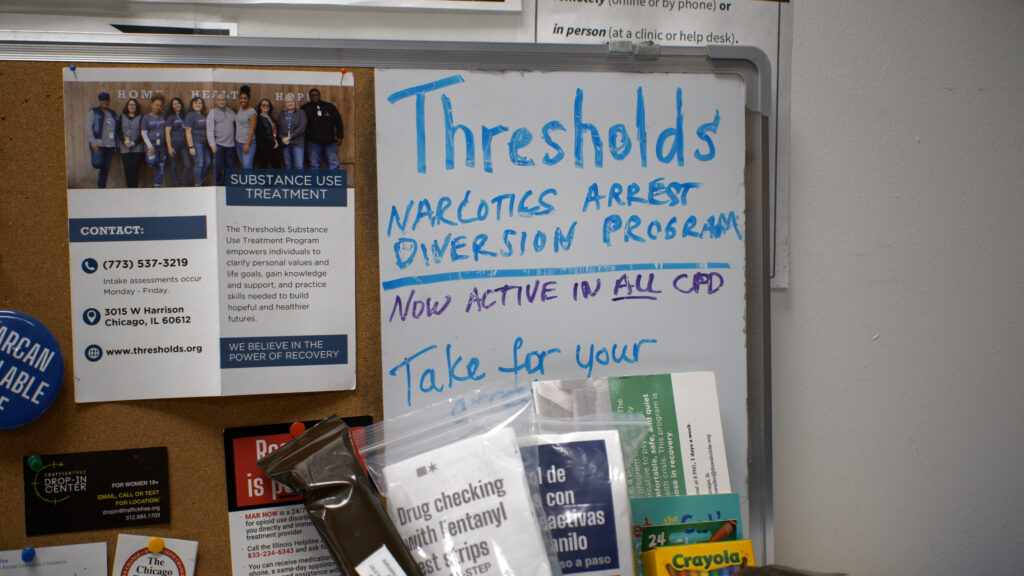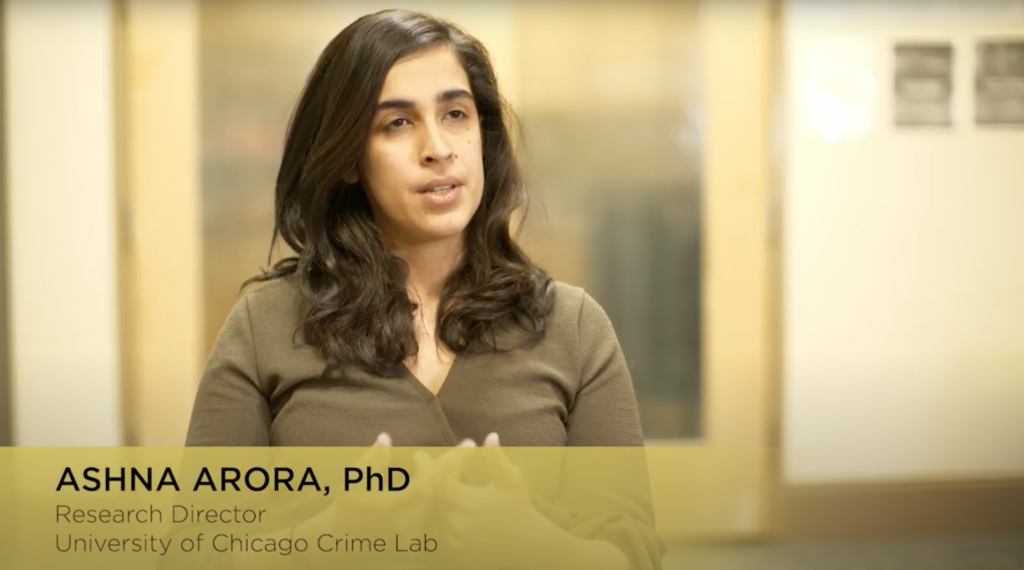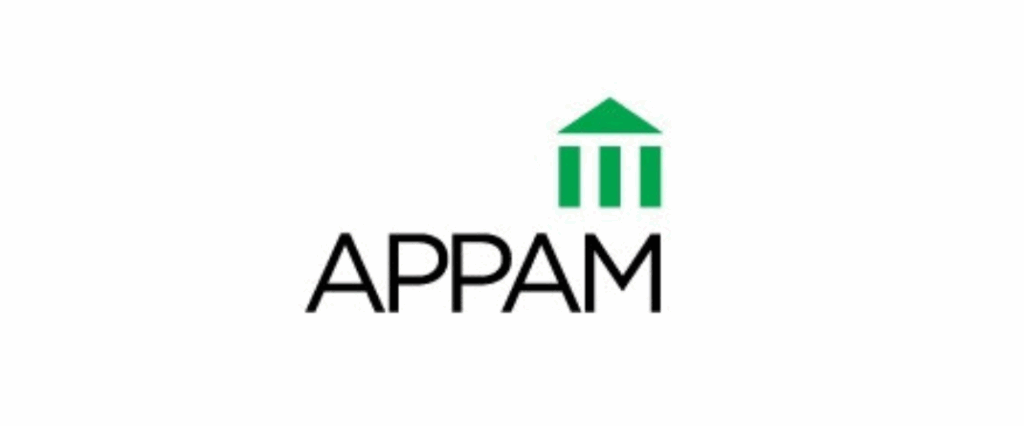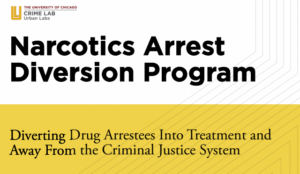Narcotics Arrest Diversion Program (NADP)

NADP provides supportive interventions for individuals apprehended for drug possession and is the most extensive police-led drug diversion program in the United States.
Challenge
More Americans die from opioid overdoses than from homicides or car accidents yearly, including in Chicago, where the homicide rate is exceptionally high. Still, the traditional punitive response to the opioid crisis—criminal sanctions or the threat of criminal sanctions—increases contact with the criminal justice system without necessarily addressing underlying substance use disorders.
Opportunity
The Crime Lab evaluated NADP, a program implemented by Thresholds, in which individuals eligible for diversion are connected with a substance use counselor, are released without criminal charges, and face no threat of future prosecution related to the arrest. Early findings of the study show that the program successfully engages participants in treatment and significantly reduces re-arrest rates, demonstrating that a sanction-free response to the opioid crisis can work at scale to help make cities safer and healthier. NADP is a partnership between the Chicago Police Department, the Chicago High Intensity Drug Trafficking Area, the Chicago Department of Public Health, and community behavioral health provider Thresholds.
Project overview
Chicago sits amid a national opioid epidemic with devastating social, health, and economic consequences. The opioid crisis disproportionately affects communities on the city’s West Side, where open-air markets supply most of Chicagoland’s heroin. Traditional responses have centered on criminal sanctions, as in the mandatory minimum sentencing that contributed to mass incarceration in the late 1980s, or the threat of criminal sanctions, as in the drug courts that began operating in the 1990s and continue today.
For people with substance use disorders who are apprehended by the police, NADP offers a supportive, rather than punitive, intervention that seeks to address the root causes of opioid use. Those eligible for diversion are connected with a substance use counselor, are released without criminal charges, and face no threat of future prosecution related to the arrest. Because the program aims to reduce the amount of contact people with substance use disorders have with the criminal justice system, NADP is unique because it diverts people before they are formally charged with a crime.
NADP is the most extensive effort of its kind in the United States—as of June 2023, NADP has connected over 1,500 people with treatment. Initially implemented on Chicago’s West Side in 2018, the program expanded citywide in November 2021.
Researchers from the University of Chicago Crime Lab and Vanderbilt University are evaluating the impact of NADP on participants’ later criminal justice involvement and risk of overdose. Early findings indicate that the vast majority of people who are diverted go on to start treatment, and over half of those who start treatment remain engaged for over a month. Those eligible for diversion were also significantly less likely to be re-arrested. Ultimately NADP demonstrates that a sanction-free response to the opioid crisis is not only possible but highly effective.
The Chicago Police Department and the Chicago High Intensity Drug Trafficking Area developed NADP in partnership with community behavioral health provider Thresholds and researchers at the University of Chicago Crime Lab and Health Lab.
Years Active
2018 – present
Topics
Project Leads
Panka Bencsik
Assistant Professor of Medicine, Health, and Society and of Public Policy, Vanderbilt University


This video provides an overview of the Crime Lab’s evaluation of the Narcotics Arrest Diversion Program, a program implemented by the community behavioral health provider Thresholds.
Related News
#CelebratePolicyImpact: Crime Lab’s Research Expands Drug Treatment Access
The Association for Public Policy Analysis and Management (APPAM) highlights the Crime Lab’s study of Chicago’s Narcotics Arrest Diversion Program (NADP), a local agency collaboration that seeks to address the root causes of substance use by offering treatment in lieu of prosecution.

Chicago Program That Encourages Drug Treatment Over Arrest Shows Signs of Success, Research Says
The Crime Lab’s evaluation of the Narcotics Arrest Diversion Program, which has demonstrated success in reducing drug-related arrests, is highlighted in this piece by WTTW’s Paris Schutz.

Mayor Lightfoot Announces Expansion of Narcotics Arrest Diversion Program
Updated program policy expands amounts and types of controlled substances


Policing Substance Use: Chicago’s Treatment Program for Narcotics Arrests – Working Paper
This working paper sheds light on the effectiveness of diversion programs by showcasing Chicago’s drug diversion program success in reducing drug-related arrests.

Narcotics Arrest Diversion Program (NADP) Research Brief
Research Brief for the Narcotics Arrest Diversion Program.
NADP CPD Directive
Read more about the CPD directive regarding NADP.
